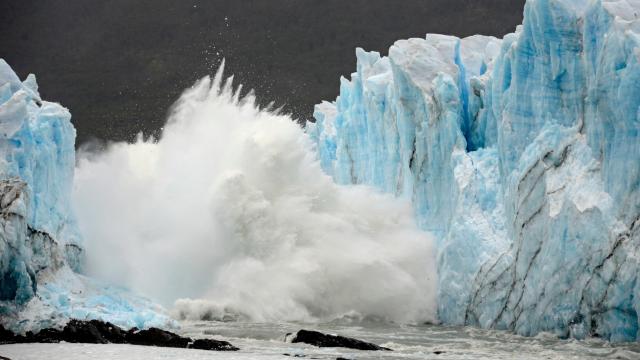Climate change is everything, including our language.
The new words we’re relying on are driven by humanity’s growing understanding we are in a bad, bad place. That shift was underscored by Oxford Dictionary’s choice for word of the year: “climate emergency.”
It’s been a staggering rise for a phrase that was barely mentioned or searched before 2019. I could tell you about the stunning rise of climate emergency, but I think charts actually show it better than words can. Here’s Oxford Dictionary’s chart showing usage monitored by their language research project known as Oxford Corpus:
And here’s the Google Trends search history over the past five years, globally:
The word of the year is meant to define the year that was, and the data sure backs up Oxford Dictionary choosing climate emergency. But what does it really tell us about society in 2019?
To date, our most common emergencies were medical-related. But in their announcement, the Oxford Dictionary noted that “climate emergency surpassed all of those other types of emergency to become the most written about emergency by a huge margin, with over three times the usage frequency of health, the second-ranking word.”
The fact that the word “emergency” is now most often paired with climate reveals a renewed urgency about climate change unseen at basically any point in history. And it feels like, at least from a public awareness standpoint, a tipping point. Quoting the definition of a word is a college essay cliché, but in this case, it’s an apt and poignant reminder of what we’re dealing with: An emergency, according to the Oxford English Dictionary, is “a state of things unexpectedly arising, and urgently demanding immediate action.”
We’ve been living with climate change for more than a century, and scientists have since the 1980s regularly warned that we needed to cut carbon pollution. But things have dramatically changed in the past two years. The first is the science of climate change, which has produced increasingly dire findings. A series of reports published since late last year has made the case for realising humanity is facing a crisis. Emissions are rising, species are facing extinction, and time is limited to stave off more serious damage to the climate that has allowed humans to thrive. At the same time, wildly destructive fires, hurricanes, and flooding events have driven home the points in those reports that we are headed to a more dangerous place in the coming decades if we don’t act.
Together, the reports and weather set off alarms. But climate protests have been a huge amplifier, cranking up the calls for us to treat climate change like an emergency. Greta Thunberg began a solitary strike last August, and the movement she’s led has since exploded with millions of young adults taking to the streets to demand a better future. (It’s perhaps no surprise that Collins Dictionary chose “climate strike” as a word of the year.) Among the most famous lines from Thunberg’s speeches is one that encapsulates the emergency mentality: “I want you to act as if our house is on fire. Because it is.”
Governments, it appears, are at least partially listening to her and other protesters, notably Extinction Rebellion that lists governments declaring a climate emergency as a core demand. The UK became the first country in the world to declare a climate emergency in May. It’s since been followed by Canada, and there’s a proposal in the U.S. as well.
But the real swell in literal climate emergency declarations have taken place at the local level. Nearly 1,200 climate emergency declarations have been issued around the globe by local and regional governments representing 454 million people, according to data kept by the Climate Mobilisation, another group that has pushed for climate emergency declarations and provides a toolkit for activists. To convey just how rapidly all this has come together, let’s again go the graphs.
“We spent a few years on the fringe of the movement, in part, because our analysis of the situation is so extreme,” Margaret Klein Salamon, founder and executive director of the Climate Mobilisation, told Earther in an email. “People weren’t yet ready to talk about the emergency nature of the situation. It is very gratifying to see this collective awakening to the severity of the Climate Emergency and the need for Climate Mobilisation at a scale and speed not seen since WWII.”
The jangly nerves of society is also clear in the other finalists for Oxford Dictionary’s word of the year. Among them are “climate crisis,” “ecocide,” “eco-anxiety,” “flight shame,” and “extinction.” Each has seen a dramatic spike (eco-anxiety is up 4,280 per cent in the Oxford Corpus, for example), showing people are truly freaked out. But terms like “climate action,” “net zero,” and “plant-based” also show people are searching for solutions (maybe next year’s word of the year will be fossil fuel trials).
Ultimately, the word of the year shows we are at a crossroads where nothing will be the same anymore. How we react to the emergency is up to us.
“The most important thing is that people recognise the Climate Emergency for what it is: a generation-defining moment in history and a giant threat,” Klein Salamon said before invoking Thunberg. “We need to accept the fact that our house is on fire and to reprioritize our lives around the fight for our future and for all life.”
